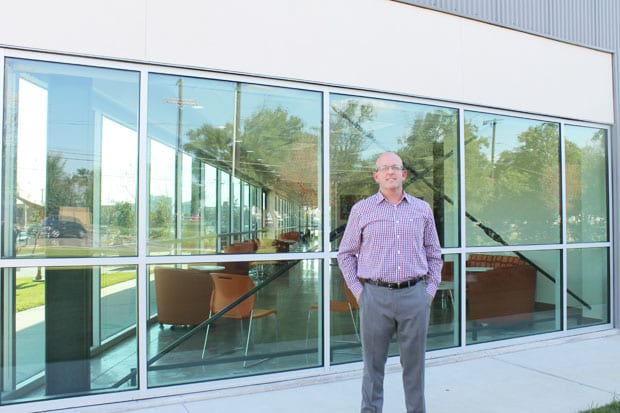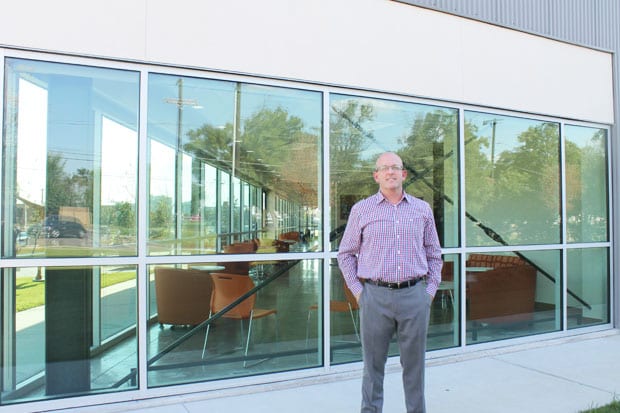Resource Center’s new counseling program growing quickly, director says

DAVID TAFFET | Senior Staff Writer
Officials with Resource Center’s new Behavioral Health Program this week said the program builds on the agency’s existing counseling program, expanding it beyond what’s been offered in the past.
“We’re seeing greater need than in the past,” said Program Director Scott Martin, explaining the neeed for the new service,
The new program handles clients with greater counseling needs than in the past, Martin said, including substance abuse, depression and transgender issues.
The original program, which continues to operate, is a partnership between the center and Southern Methodist University. Because interns provide the counseling, that program primarily works with clients dealing with issues that require shorter-term sessions.
Martin said he has been surprised by the number of calls that have come in since the clinic opened at Resource Center’s new building on Cedar Springs Road in July. He said he’s received quite a few calls from parents whose children are transgender, and that he’s been pleasantly surprised that those parents have been supportive and were simply calling to get their teens the help they need.
Quite a few other calls have been from corporate human resource departments seeking drug or alcohol counseling for their employees. Again, Martin said, he’s been pleasantly surprised that HR officials calling for help aren’t asking about the sexual orientation of their employees. The Behavioral Health Program is not restricted to LGBT clients, Martin noted, adding that among the first people to access the new service have been several straight clients.
Martin sees his program as a hub in Resource Center’s web of programming. While he said there are a number of other fine counselors in the community and other quality counseling centers, like the ones operated by Texas Health Resources where Martin worked before joining Resource Center, his program has a distinct advantage: clients have easy and immediate access to the center’s other support services and programs.
When a teen comes for counseling on trans or coming out issues, for example, Martin can supplement his counseling sessions by introducing the client to Youth First. Those with addiction problems might benefit by attending the meth recovery group that meets several times a week at the center. Those considering transitioning may want to talk to and interact with people who are in different stages along the way in that process.
“I can walk them over to GEAR,” Martin said, of his transgender clients. And the center’s Nelson Tebedo Clinic offers hormone treatment under the care of local physicians.
Even though there’s been no public announcement of the new program, and no publicity around it, Martin said the program has been so successful since its July opening that two more staff members will be added in October.
In addition, space in the old community center building will be renovated with additional counseling rooms, so two more positions can be added this winter.
Martin said the Behavioral Counseling Program is also connecting Resource Center with other agencies throughout Dallas. The center is working closely with the Cohen Veterans Network, which provides mental health care for veterans at locations in five cities at no cost. Locally, it opened a clinic in Addison this year.
Martin said the Addison clinic is partnering with Resource Center to use the center as its LGBT specialist.
The Behavioral Health Program begins its intake process with a free assessment session. The program runs with a fee for service and most major insurance is accepted.
In the assessment, Martin said, he discusses options. He’ll transfer someone who needs detox before counseling or who is suicidal to the proper treatment hospital. Or he’ll look for an alternative for someone whose insurance won’t cover his counseling program.
As the program continues to grow, Martin said he continues to be surprised by the variety of clients accessing the service. He said he expected relationship problems to be one of the major issues his staff would face. Gay men, he said, tend to request a gay male counselor, probably because they expect to discuss sexual issues are are more comfortable talking about that with someone with similar experiences.
He said it’s interesting that since the marriage equality decision, he’s seen an increase in same-sex couples have coming forward to ask for help with their relationships.
“Since we’re more validated,” he said, “we have more permission to ask for help.”
To schedule a free assessment with Resource Center’s Behavioral Health Program, call 214-393-3640.
This article appeared in the Dallas Voice print edition September 16, 2016.

